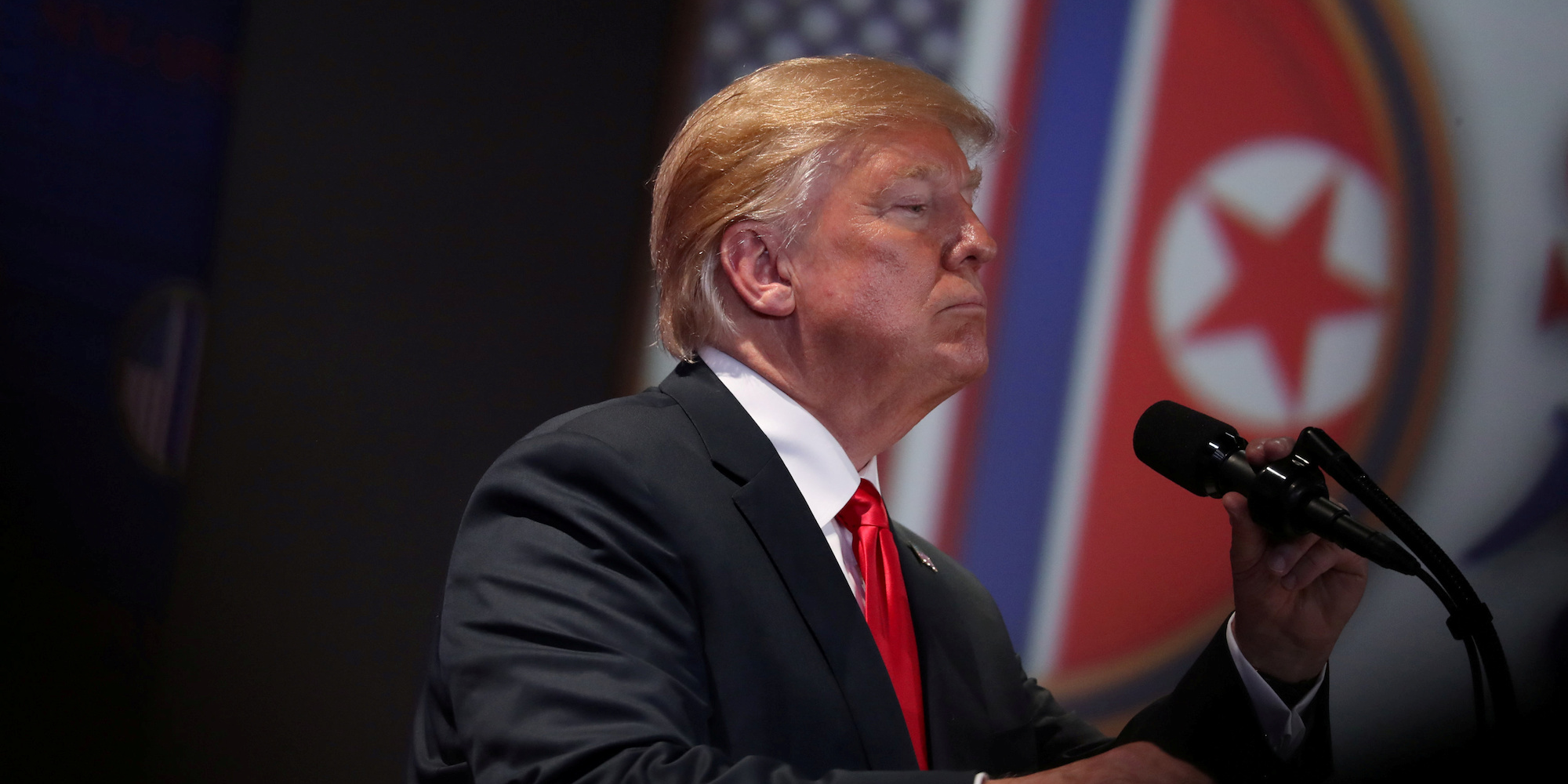- President Donald Trump conceded Tuesday that he could end up being wrong about North Korean leader Kim Jong Un’s pledge to denuclearize – but said he’d probably never admit it and would most likely find “some kind of an excuse” if it came to that.
- The president said he trusted the North Korean leader to live up to his word in terms of the “comprehensive” agreement the two signed at this week’s summit in Singapore.
- Many critics have said the agreement is vaguely worded and pointed out it lacks a specific outline for how North Korea will rid itself of nuclear weapons .
President Donald Trump on Tuesday conceded that he could end up being wrong about North Korean leader Kim Jong Un’s pledge to denuclearize the Korean Peninsula – but said he’d probably never acknowledge it and would most likely find “some kind of an excuse” if it came to that.
“I may be wrong, I mean I may stand before you in six months and say, ‘Hey I was wrong,'” Trump said at a press conference after his historic meeting with Kim.
“I don’t know that I’ll ever admit that, but I’ll find some kind of an excuse,” Trump added.
Trump says he trusts Kim Jong Un. And if he's wrong? "I may be wrong, I mean I may stand before you in six months and say, 'Hey I was wrong,'" said Trump, before adding, "I don't know that I'll ever admit that, but I'll find some kind of an excuse." https://t.co/fk4Fpko8qC pic.twitter.com/FKFfSVE7VE
— CNN (@CNN) June 12, 2018
The president said he trusted the North Korean leader to live up to his word in terms of the "comprehensive" agreement the two signed at the summit in Singapore.
The agreement has four main ingredients: the US and North Korea agreed to establish new relations for the "peace and prosperity" of the two countries; the US and North Korea agreed to work together to establish a "lasting and stable peace regime" on the Korean Peninsula; North Korea committed to work toward the denuclearization of the Korean Peninsula; the US and North Korea committed to recovering remains of people killed in the Korean War and repatriating remains that have been found.
Trump also agreed to halt joint military exercises between the US and South Korea on the Korean Peninsula, though that decision seemed to surprise both Seoul and the Pentagon.
The deal Trump made with North Korea could end up fundamentally changing the state of relations between the US and North Korea, but many critics point out that it lacks a specific outline for how Pyongyang will denuclearize.
'The document is short on details'
Senate Minority Leader Chuck Schumer on Tuesday criticized the agreement's lack of specificity and noted that similar pacts with North Korea had fallen apart in the past.
"The document is short on details," Schumer said. "As we have learned in the wake of the collapse of the 1994 and 2005 agreements, North Korea is liable to backtrack on vague commitments as soon as it's in their interest."
"It is worrisome, very worrisome, that this joint statement is so imprecise," Schumer added.
Trump was also accused of being overly flattering is his language toward Kim, who leads one of the most repressive governments in the world, after saying the North Korean leader was a "talented man" who "loves his country very much."
Schumer said Trump's meeting with Kim gave "a brutal and repressive dictatorship the international legitimacy it has long craved."

